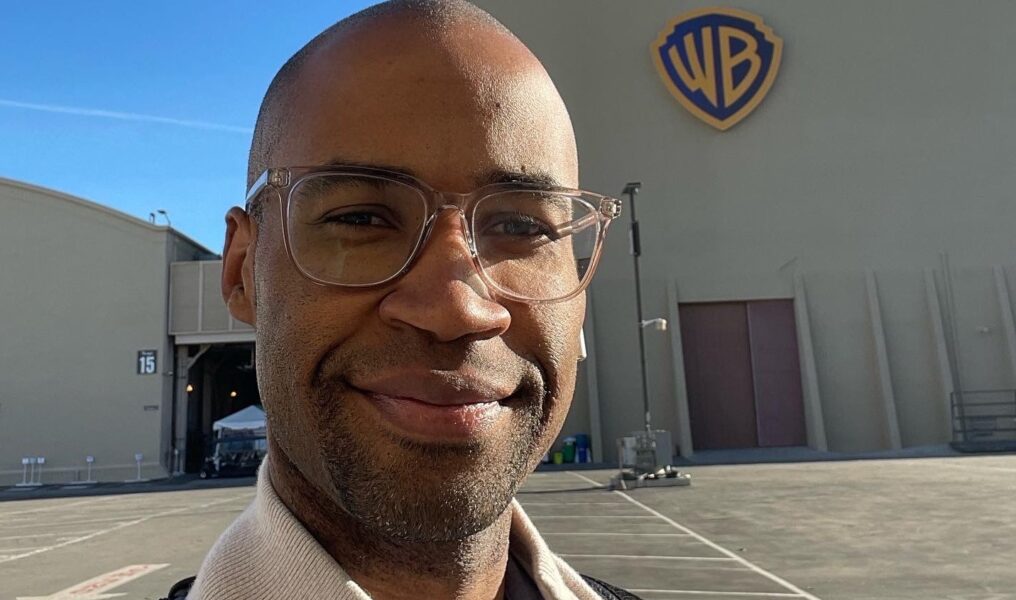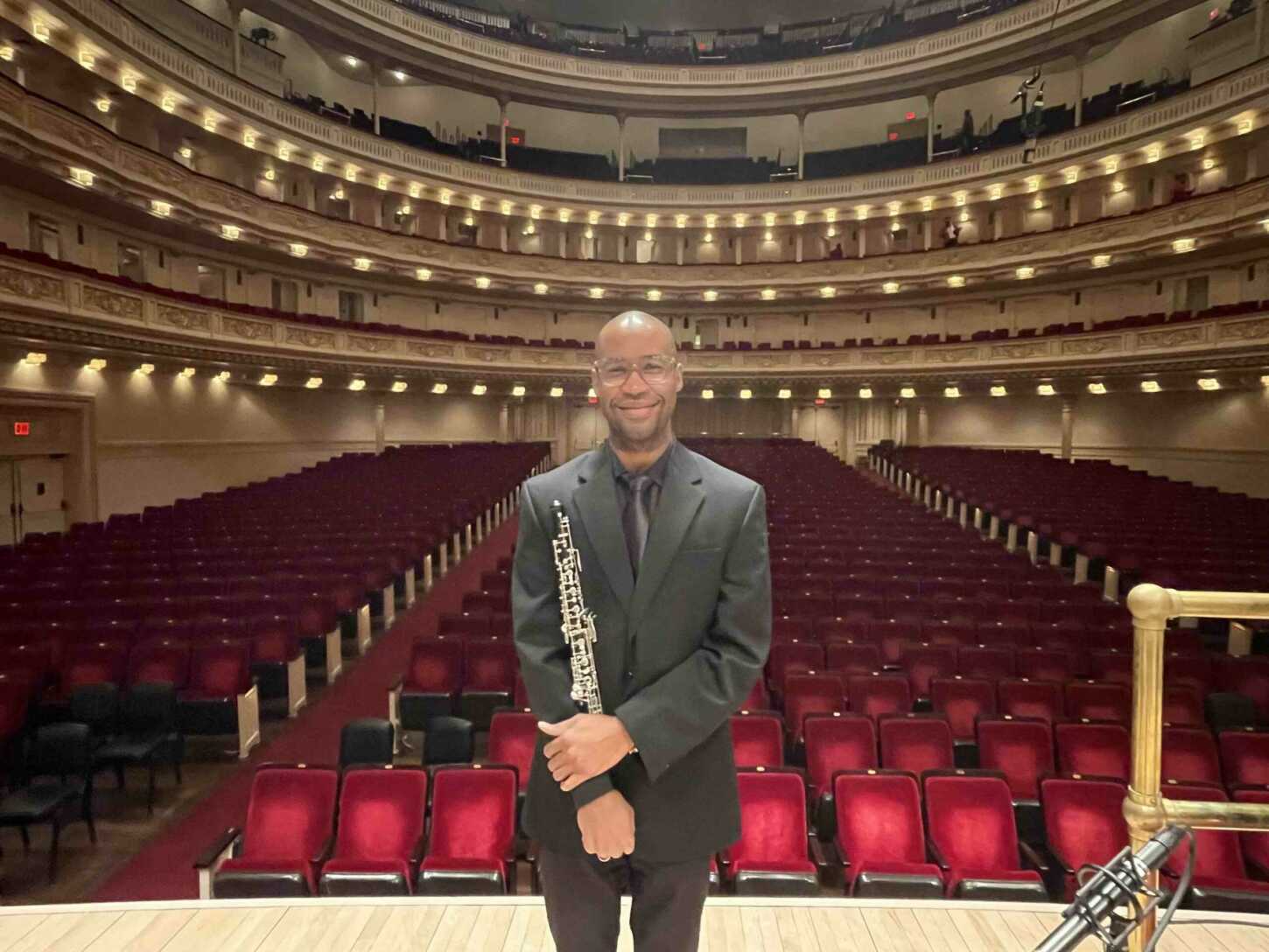From Michigan to Hollywood: Meet the Gay Metro Detroiter Performing on the 'Creed III' Soundtrack
Geoffrey Johnson, a DSO musician, also performed on the score for 2019's 'The Lion King'

When Geoffrey Johnson first picked up an oboe as an elementary school student, he never imagined that he’d one day be playing the iconic double-reed symphony instrument on a soundstage in Hollywood. A few decades later, though, he has three such experiences under his belt. Most recently, his musical talent can be heard in “Creed III,” which is in theaters now.
Ironically, Johnson isn’t a “huge movie watcher,” though he has seen most of one of the films he was a part of: 2019’s live-action “The Lion King.” He even once caught a glimpse of a fellow airplane passenger watching it in flight. “It was kind of wild that other families were enjoying the work we did,” he says.
Johnson, who lives in Royal Oak, also played oboe at the 2022 CNN concert “Juneteenth: A Global Celebration for Freedom” at the Hollywood Bowl and on other movie scores, like Spike Lee’s latest film, “Da 5 Bloods.” He says the experience of creating scores with groups of musicians he usually hasn’t met before in unusual settings takes a different skill set versus his work with ensembles like the Detroit Symphony Orchestra (DSO) or as an instructor for local oboe students and in adjunct roles at schools like Western Michigan University. No matter the role at hand, Johnson applies years of painstaking training and study at Baylor University and the Cleveland Institute of Music, where he earned his master’s in music performance.

On top of his impressive accomplishments in a notoriously competitive field, Johnson is a standout among standouts as a Black, gay classical musician. A 2014 League of American Orchestras study revealed that only 1.4% of orchestra musicians were Black — a figure that may have changed in the years since, but is surely still quite low. It’s impossible to guess how many of those musicians are LGBTQ+, but it’s safe to assume that Johnson is part of a very small minority.
Johnson says when he’s on stage, it’s all about the music, which requires extreme concentration, but he does reflect on what his being on stage at all means for representation. “You never know how it’s going to affect people, and that’s a great thing,” he says. “You never know who is at the symphony for the first time or what it will mean for them.”
As a young musician in the Houston Youth Symphony, it meant a lot to Johnson himself to see queer representation on stage as a high schooler on a class trip to New York City. “I was dying to see Bob Fosse’s show on Broadway as a musical kid, and there was this one scene I’ll never forget,” he says. “It was three couples dancing on stage — one couple was straight, one couple was two women and one couple was two men. They were all doing similar choreography, but that scene has always stuck with me. I was with my father at the time and there was no negative or positive conversation — it was just part of the theater experience.”
“I do know that being on stage itself is important for our communities. My presence affects many people,” he says. “Kids have conversations with me about feeling really inspired and as performers, that’s what we’re trying to do.”
Johnson says the Detroit fine arts scene has been notably proactive when it comes to diverse representation. From making diversity-conscious decisions about which shows and artists to support to small things like a recent remodel of the DSO’s dressing rooms to include gender-neutral spaces, the city, he says, excels in diversity and inclusion. “I don’t take it for granted, because I have seen other cities where it’s not the norm,” he says. “Detroiters might take it as a norm at this point, but it’s important, and Detroit is doing it every day. It’s a standard within the city now.”
Happily, Johnson has had a positive experience as part of the DSO, which he says has been almost like a family to him over the past 15 years. “My colleagues know me very well,” he says. “We’ve done tours together to places like China, where the culture is not as accepting of sexuality, and if anything, I’d say they’re probably more protective when we travel. They care about making everybody feel safe — whether it’s sexuality or ethnicity, the orchestra is very conscious.”
Off stage, Johnson is able to connect directly to students as an oboe instructor out of his private studio. “I’m probably even more conscious of representation in that space,” he notes. “I’ve had a student come out to me and kids who started with me as middle schoolers who are now high schoolers or even in college and I’m now seeing them be able to come out. I’ve also had a handful of students who are trans, which is really cool to see that their parents and families have embraced that.”
“To deal with that, as a kid — I admire that so much. That’s been one of the joys of teaching, seeing them live in a world I wasn’t able to live in growing up. Really, it’s the joy of a lifetime.”










